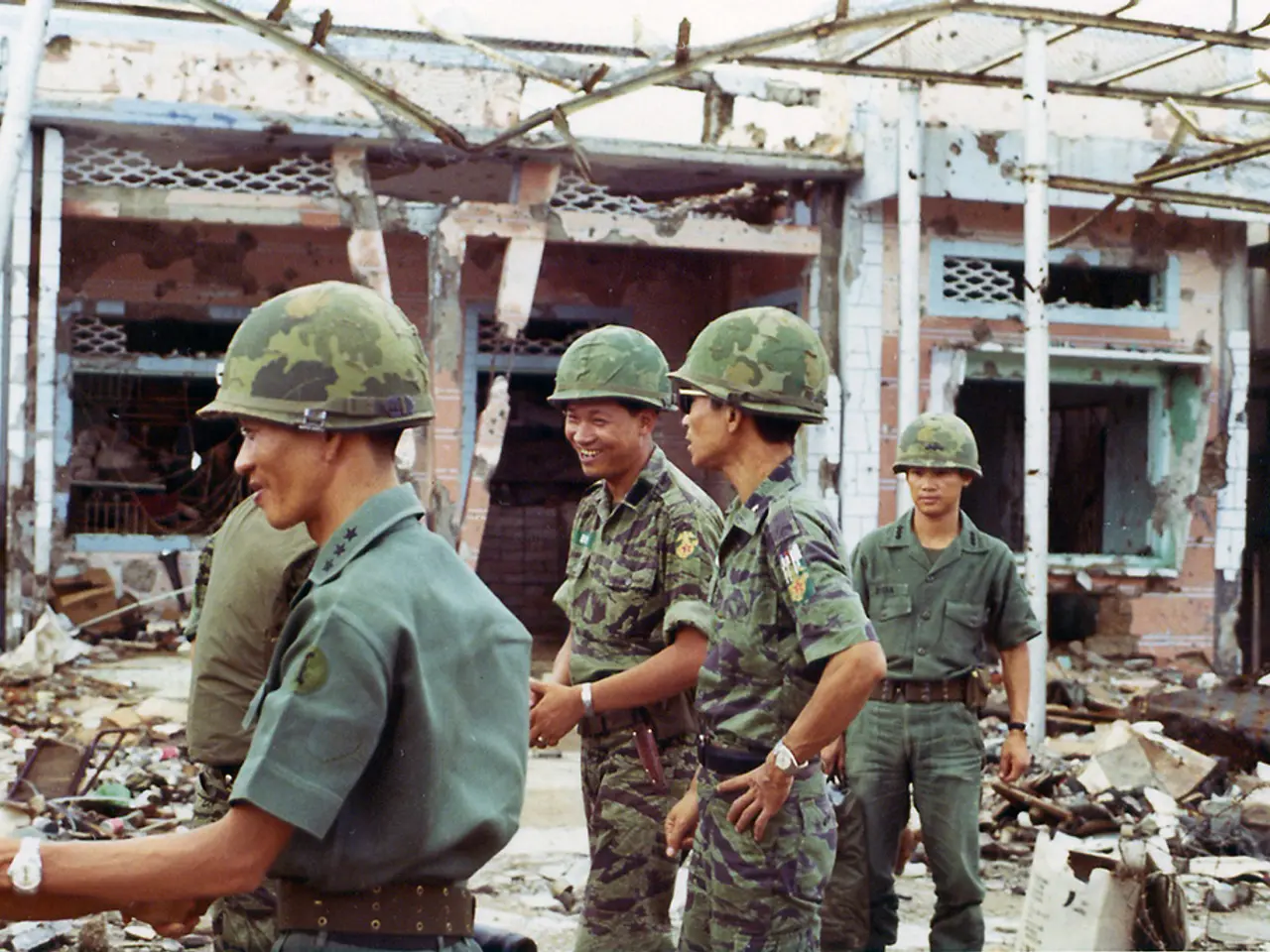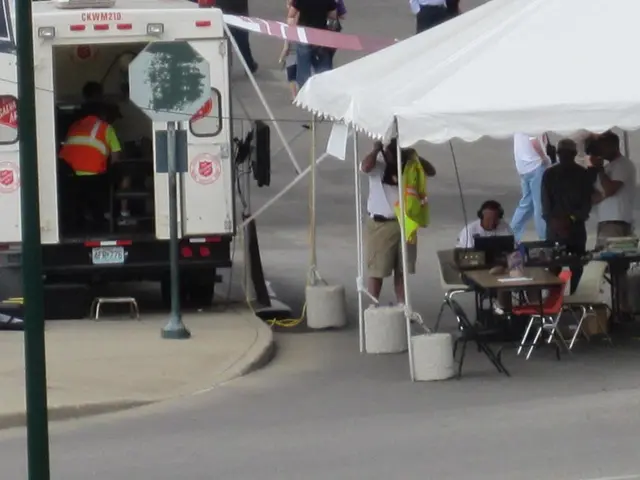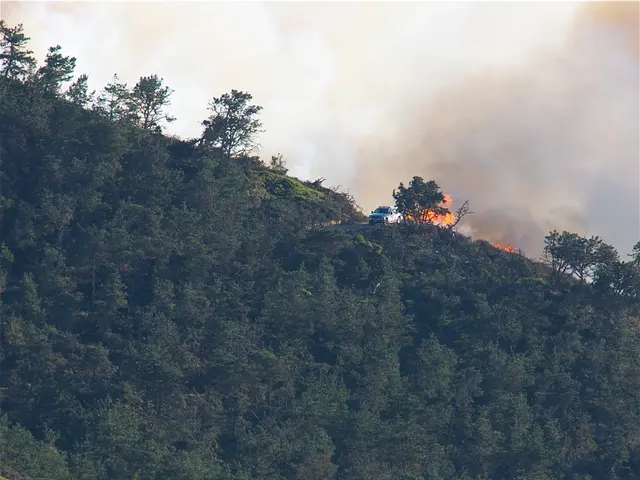West Bank Under Military Lockdown: Reality Overpowers Legalities as Armed Troops Enforce Order
In the heart of the West Bank, the city of Hebron is currently under a state of lockdown, with the Israeli Defence Forces (IDF) maintaining a heavy presence. This situation has been a constant feature of Hebron since the 1967 Six-Day War, when Israeli settlements were established in the area for various reasons, including reclaiming historically Jewish lands, strategic security concerns, and ideological motives.
The city, sacred to both Jews and Muslims, is home to the settlement of Kiryat Arba, founded as part of the religious-nationalist movement to assert Jewish presence near Hebron. Prior to 1948, Jewish communities existed in Hebron and the Gush Etzion bloc, but these were expelled or massacred during the 1948 Arab-Israeli War. After Israel captured the West Bank in 1967, some settlers returned to re-establish these historical communities.
Currently, Hebron remains a highly contentious hotspot due to the presence of both a significant Palestinian population and Israeli settlers. The settlement activity in Hebron is part of a broader Israeli settlement enterprise in the West Bank, which houses over 670,000 Israeli settlers as of 2025. These settlements exist mainly under Israeli government sanction, although their legality is widely disputed internationally.
The IDF soldiers, heavily armed, have taken over a section of the old town in Hebron, overseeing the city's market area from an upper balcony of a building. Anyone trying to pass the IDF's lines is turned around. The October 7th Hamas attack on Israel has significantly changed the situation in the West Bank, with the IDF joining dozens of military units, both on foot and in armored jeeps, in Hebron.
Waseem Jabari, a Palestinian man who runs a souvenir shop in Hebron, stated that settlers pass by his shop weekly, guarded by the military. He expressed his dislike for violence and stated that he wants peace, justice, rights, and freedom for Palestinians. He emphasized that Palestinians are tired of violence and want to live peacefully, regardless of their religious affiliation.
Life for Palestinians in the West Bank has gotten worse due to the military and settler presence and actions. The IDF is ordering shops to shut and market traders to wheel away their stalls of fruit and vegetables. The city centre, classified as Area A in the West Bank, where Israeli law states that no Israelis are allowed, is being disregarded by the military and settlers, enabled by the IDF.
When the settlers come, they do it to assert their control over Hebron, according to Waseem Jabari. The IDF is closing down stalls and shops, forcing cars to move on, and clearing the streets. Groups of Orthodox Jews and Israeli settlers are moving through Hebron, escorted by the IDF, while groups of Palestinian journalists are being shouted at and told to move back.
The international community and Palestinians largely consider Israeli settlements in Hebron and the West Bank illegal under international law, viewing the West Bank as occupied territory. Israel disputes this interpretation, citing historical Jewish ties to the land and arguing that the West Bank is disputed territory rather than occupied sovereign territory of any state prior to 1967. Significant events influencing Hebron’s settlement situation include the violent 1994 Cave of the Patriarchs massacre by an Israeli extremist, the Hebron Protocol (1997), and ongoing negotiation challenges regarding settlements as a core issue in the Israeli-Palestinian conflict.
In sum, Hebron’s Israeli settlements are rooted in a mix of historical presence, ideological claims, and security strategies post-1967, and remain a focal point of intense conflict, international legal dispute, and sensitive political negotiation.
- The ongoing presence of Israeli settlements in Hebron, a city sacred to both Jews and Muslims, is a longstanding controversy that has deep roots in war-and-conflicts, politics, and general-news, particularly since the 1967 Six-Day War.
- Waseem Jabari, a Palestinian shop owner in Hebron, expressed his desire for peace, justice, rights, and freedom for Palestinians, stating that he dislikes violence and that Palestinians are tired of conflict, regardless of their religious affiliation.
- The international community generally views Israeli settlements in Hebron and the West Bank as illegal under international law, considering the West Bank as occupied territory, a view that Israel disputes, citing historical Jewish ties to the land and arguing that the West Bank is disputed territory rather than occupied sovereign territory of any state prior to 1967.







